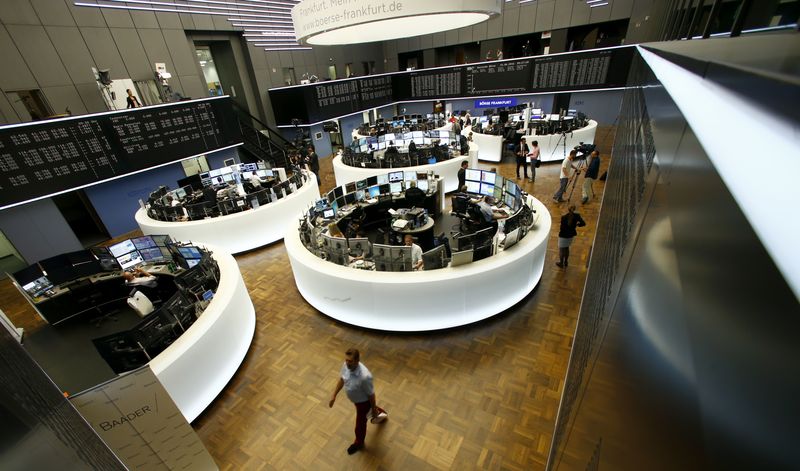Gold prices edge higher on raised Fed rate cut hopes
Investing.com - A rebound in European stocks could be put under pressure by potential trade-induced softness in global growth, according to analysts at BofA.
European equities have recovered from a correction sparked by the onset of U.S. President Donald Trump’s tariff agenda, with investors buoyed by signs that the White House’s aggressive stance may be easing.
"This has left the European equity market moving from pricing a sharp slowdown to pricing a scenario in which the increase in trade tensions leads to no discernible macro damage," the BofA analysts said.
On Monday, the U.S. and China agreed to lower tit-for-tat tariffs and temporarily delay their respective levies for 90 days.
The move came after U.S. President Donald Trump slapped soaring duties of at least 145% on China, leading Beijing to respond with its own retaliatory tariffs of 125%.
Following the deal, the U.S. tariffs on China were brought down to 30%, folding in a baseline 10% levy and separate 20% duties related to Beijing’s alleged role in the flow of the illegal drug fentanyl. China, meanwhile, cut its tariffs on U.S. items to 10%.
Trump also previously announced -- and then paused -- so-called "reciprocal" tariffs on both friends and adversaries in April.
Meanwhile, recent economic data have suggested broad-based resilience against headwinds presented by the levies, especially in the U.S.
However, the BofA analysts flagged that they expect to see "weakening global growth ahead", noting that, even after the trade pauses, the U.S. effective tariff rate remains higher by 10 percentage points compared to the start of the year.
This is tipped to translate to a 70-basis point drag on U.S. output, they projected, adding that lingering uncertainty could also weigh on private sector investments.
Although hopes that the trade truce will bolster China’s economy as well, a return to earlier estimates of sluggish growth could dent global business activity, the analysts said.
"With European equities at current levels priced for global purchasing managers’ index upside, that points to scope for disappointment," they noted.
The analysts said they remain "negative" on stocks from the region and "underweight" European cyclical versus defensive stocks. Cyclical names tend be swayed by the broader economy, while defensives are viewed as possible outperformers during times of slower growth.
Sectors like utilities and food and beverage in Europe are anticipated to see "renewed upside" should economic weakness emerge, while banks and insurance stocks would be vulnerable to this trend, the BofA strategists said.
